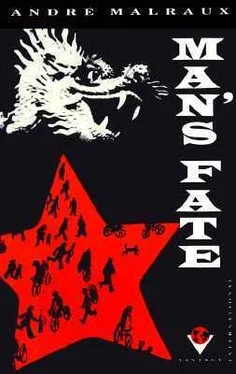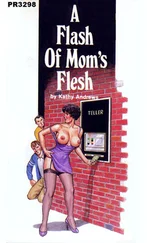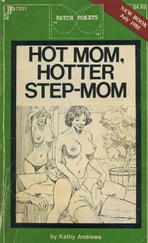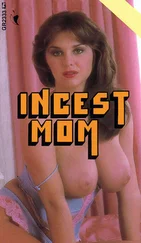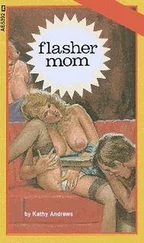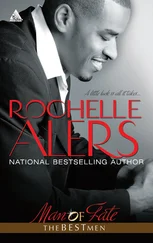The officer went out. The door remained open.
The sentinels presented arms: a civilian entered. “Section A,” shouted a voice from without, and thereupon the door was shut. One of the sentinels led the civilian towards the wall, grumbling as he went; when he was quite close, Katov, with stupefaction, recognized Kyo. As he was not wounded, the sentinels upon seeing him arrive between two officers had taken him for one of the foreign counselors of Chiang Kai-shek; now recognizing their mistake, they were abusing him from a distance. He lay down in the shadow beside Katov.
“You know what’s ahead of us?” the latter asked. “They’ve been careful to advise me-l don’t care: I have my cyanide. Have you yours?”
“Yes.”
“Are you wounded?”
“In the legs. But I can walk.”
“Have you been here long?”
“No. When were you caught?”
“Last night. Any way of getting out of here?”
“Not a chance. Almost all are badly wounded. Soldiers everywhere outside. And you saw the machine- guns in front of the door?”
“Yes. Where did they get you?”
Both needed to get away from this death wake, to talk, to talk: Katov, of the taking of the Post; Kyo, of the prison, of his interview with KOnig, of what he had le^ed since; even before he reached the temporary prison, he had found out that May had not been arrested.
Katov was lying on his side, right beside him, separated from him by the vast expanse of suffering-mouth half-open, lips swollen under his jovial nose, his eyes almost shut-but joined to him by that absolute friendship, without reticence, which death alone gives: a doomed life fallen next to his in the darkness full of menaces and wounds, among all those brothers in the. mendicant order of the Revolution: each of these men had wildly seized as it stalked past him the only greatness that could be his.
The guards brought three Chinamen. Separated from the crowd of the wounded, but also from the men against the wall. They had been arrested before the fighting, summarily tried, and were now waiting to be shot. “Katov!” one of them called.
It was Lu Yu Hsiian, Hemmelrich’s associate.
“What?”
“Do you know if they’re shooting us far from here, or near by?”
“I don’t know. We can’t hear it, in any case.”
A voice said, a little beyond:
“Seems that the executioner, afterwards, pilfers your gold teeth.”
And another:
“I don’t give a damn. I haven’t any.”
The three Chinamen were smoking cigarettes, puffing away stubbornly.
“Have you several boxes of matches?” asked one of the wounded, a little farther away.
“Yes.”
“Throw me one.”
Lu threw his.
“I wish someone could tell my son that I died bravely,” he said in a low voice. And, even a little lower: “It is not easy to die.”
Katov discovered in himself a lusterless joy: no wife, no children.
The door opened.
“Send one out!” shouted the sentry.
The three men were pressing close to one another.
“Come on, now,” said the guard, “make up your minds. ”
He did not dare to make a choice. Suddenly, one of the two unknown Chinamen took a step forward, threw down his scarcely b^urn cigarette, lit another after breaking two matches and went off with a hurried step towards the door, buttoning as he went, one by one, all the buttons of his coat. The door again shut.
One of the wounded was picking up the broken matches. His neighbors had broken into small fragments those from the box Lu Yu Hsi.ian had given them, and were playing at drawing straws. In less than five minutes the door again opened:
“Another!”
Lu and his companion went forward together, holding each other by the arm. Lu was reciting in a loud voice, without resonance, the death of the hero in a
famous play; but the old Chinese solidarity was indeed destroyed: no one was listening.
“Which one?” asked the soldier.
They did not answer.
“Well, is one of you going to come?”
With a blow of his rifle-butt he separated them. Lu was nearer to him than the other; he took him by the shoulder.
Lu freed his shoulder, stepped forward. His companion returned to his place and lay down.
Kyo felt how much more difficult it would be for this one to die than for those who had preceded he remained alone. As brave as Lu, since he had stood up with him. But now his manner of lying on the ground, like a hunting-dog, his arms held tight around his body, loudly proclaimed fear. In fact, when the guard touched him, he was seized with a nervous attack. Two soldiers took hold of him, one by his feet, and the other by his head, and carried him out.
Stretched out full length on his back, his arms resting on his chest, Kyo shut his eyes: it was precisely the posture of the dead. He imagined himself, stretched out, motionless, his eyes closed, his face composed in the serenity which death dispenses for a day to almost all corpses, as though the dignity of even the most wretched had to be asserted. He had seen much of death, and, helped by his Japanese education, he had always thought that it is fine to die by one’s own hand, a death that resembles one’s life. And to die is passivity, but to kill oneself is action. As soon as they came to fetch the first of their group, he would kill himself with full consciousness. He remembered-his heart stopped beating-the phonograph records. A time when hope stiU had meaning! He would not see May again, and the only grief that left him vulnerable was her grief, as if his own death were a fault. “The remorse of dying,” he thought with a contracted irony. No such feeling with regard to his father, who had always given him the impression not of weakness, but of strength. For more than a year May had freed him from all solitude, if not from all bitterness. The memory of the poignant flight into the ecstasy of bodies linked for the first time burst forth, alas! as soon as he thought of her, already separated from the living. “Now she must forget me. ” To write her this would only have heightened her grief and attached her all the more to him. “And it would be telling her to love another.”
О prison, place where time ceases-time, which continues elsewhere. NO! It was in this yard, separated from everyone by the machine-guns, that the Revolution, no matter what its fate or the place of its resurrection, was receiving its death-stroke; wherever men labor in pain, in absurdity, in humiliation, they were thinking of doomed men like these, as believers pray; and, in the city, they were beginning to love these dying men as though they were already dead. In all of the earth that this last night covered over, this place of agony was no doubt the most weighted with virile love. He could wail with this crowd of prostrate men, join this sacrificed suffering even in its murmur of complaint.
And an inaudible chorus of lamentation prolonged this whispering of pain into the depth of the night: like Hemmelrich, almost all these men had children. Yet the fatality which they had accepted rose with the murmur of these wounded men like the peace of evening, spread over Kyo-his eyes shut, his hands crossed upon his abandoned body-with the majesty of a funeral chant.
He had fought for what in his time was charged with the deepest meaning and the greatest hope; he was dying among those with whom he would have wanted to live; he was dying, like each of these men, because he had given a meaning to his life. What would have been the value of a life for which he would not have been willing to die? It is easy to die when one does not die alone. A death saturated with this brotherly quavering, an assembly of the vanquished in which multitudes would recognize their martyrs, a bloody legend of which the golden legends are made! How, already facing death, could he fail to hear this murmur of human sacrifice crying to him that the virile heart of men is for the dead as good a refuge as the mind?
Читать дальше
